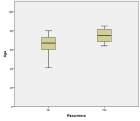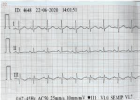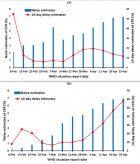Abstract
Literature Review
Code of ethics and code of practice: Two relevant documents for an effective and secure operation of tissue establishments
Jorge Morales Pedraza*
Published: 19 August, 2022 | Volume 6 - Issue 2 | Pages: 004-012
Tissue banking is an interdisciplinary medical practice more reliant than others in specialized fields and applying knowledge from other branches of science, particularly nuclear sciences. A further difference from other medical disciplines is the urgent necessity to include laws, norms, standards and statutory regulations, which differ in their juridical binding force. Adopting a code of ethics and a code of practice is one of the main tasks to be conducted by a tissue establishment after its founding. The aim is to include in these codes the main ethical principles associated with the different laws, norms, standards, and statutory regulations in force in each country in the field of tissue banking.
Read Full Article HTML DOI: 10.29328/journal.ascr.1001063 Cite this Article Read Full Article PDF
Keywords:
Code of ethics; Code of practice; Tissue establishment; Tissue banking; Human tissue; Tissue donor; Tissue recipient; Ethical policy
References
- Jorge MP. The Importance of a Code of Ethics and a Code of Practice for Tissue Establishments. Chapter 5 of the book “Legal Basis of Global Tissue Banking.” World Scientific. ISBN: 978-981-4663-43-4. 2015.
- Informed Consent in Tissue Donation: Expectations and Realities; Department of Health and Human Services; OEI-01-00-00440; Boston, USA; 2001.
- Jorge MP. Ethics in Tissue Establishments, World Scientific, ISBN 978-9814616751, 2015.
- Network; UPSC Ethics Notes; 2020.
- Schulz-Baldes A, Biller Andorno N, Morgan Capron A. International perspectives on the ethics and regulation of human cell and tissue transplantation; Institute of Biomedical Ethics, Center for Ethics, University of Zurich, Zurich, Switzerland and Gould School of Law, University of Southern California, Los Angeles, CA, USA; WHO Bulletin, 2007.
- Von Versen R, Mönig HJ, Salai M, Bettin D. Quality issues in tissue banking: Quality management systems – A review; Cell and Tissue Banking 1: 181–192, 2000; Kluwer Academic Publishers; Printed in the Netherlands; 2000.
- Marshall KB. Ethical and legal issues in research involving human subjects: do you want a piece of me? University of Notre Dame; J Clin Pathol. 2006; 59(4): 335–339.doi: 10.1136/jcp.2005.030957; 2006.
- Recommendation Rec (2006) of the Committee of Ministers to member states on research on biological materials of human origin (Adopted by the Committee of Ministers on March 15, 2006; at the 958th meeting of the Ministers’ Deputies; Council of Europe; Committee of Ministers, 2006.
- Directive 2004/23/EC of the European Parliament and of the Council on Setting Standards of Quality and Safety for the Donation, Procurement, Testing, Processing, Preservation, Storage and Distribution of Human Tissues and Cells (2004); The European Parliament and the Council; PE-CONS 3628/04; Strasbourg; 2004.
- Standards for Tissue Banking. American Association of Tissue Banks; McLean, Va: American Association of Tissue Banks; 2002.
- Kevin A, Sandie M. Ethical tissue: a not-for-profit model for human tissue supply; Cell Tissue Bank (2011) 12:9–10, DOI 10.1007/s10561-010-9203-7; Springer; 2011.
- Jorge MP. The Use of the Ionizing Radiation Technique for Tissue Sterilization: The International Atomic Energy Agency Experience; Nova Science, ISBN 978-161324-368-8; 2012.
- Ethical issues in donation of organs or tissues by living donors. Ethical issues in organ donation (1997), Discussion Paper No. 2, ISBN 0 642 27218 2, National Health and Medical Research Council (NHMRC), Australia, 1997.
- Joseph R. Ethical Issues in Organ Donation; 2012.
- Octavi QT. Ethical Aspects of Human Tissue Banking; Opinion of the European Group on Ethics in Science and New Technologies to the European Commission; 1998.
- Jorge MP.A model of a code of ethics for tissue banks operating in developing countries; ISSN 1389-9333, Cell Tissue Banking, DOI 10.1007/s10561-011-9279-8; Springer; 2011.
- Gilman, Stuart C. Ethics Codes and Codes of Conduct as Tools for Promoting an Ethical and Professional Public Service. Comparative Successes and Lessons; Prepared for the PREM, the World Bank; Washington, DC, USA; Winter 2005.
- Seumas M, Model Code of Ethical Principles; Centre for Applied Philosophy and Public Ethics, Charles Sturt University, for the Professional Standards Council of New South Wales and Western Australia; June 2002.
- José FLA. Códigos éticos para el mundo empresarial. Madrid: Editorial Trotta; 2004.
- Mark S. The Nature of the Relationship between Corporate Codes of Ethics and Behaviour. Journal of Business Ethics 32, 247-262; 2001.
- Stephan W. Ethik-Kodex und Ethik-Kommission: Ansätze zur Institutionalisierung von Unternehmensethik; Beiträge und Berichte, Nr. 69. St. Gallen: Institut für Wirtschaftsethik; 1995.
- Morales Pedraza J, Herson MR. The importance of ethic in the field of human tissue banking. Cell Tissue Bank. 2012 Mar;13(1):103-17. doi: 10.1007/s10561-010-9232-2. Epub 2010 Dec 15. PMID: 21161412.
- Jorge MP, Lobo GA. A Model Code of Practice for Tissue Banks; IJOE (ISSN: 1535-4776, Volume 8, Number 1-2; Nova Science Publishers, Inc.; USA; 2012.
- A Code of Practice for Tissue Banks. UK Department of Health; 2001.
- Therapeutic Goods (Manufacturing Principles) Determination No. 1 of 2013 (2013); Regulation impact statement for revision of manufacturing and technical standard requirements for human blood, human blood components, human tissues and human cell therapy products: Australia Federal Register of Legislation: 2013.
- Guidance Document for Cell, Tissue and Organ Establishments: Safety of Human Cells, Tissues and Organs for Transplantation (2009); Health Canada Publication; Minister of Health; Canada; 2009.
- National Association of Social Workers (NASW) (2008); Code of Ethics; Oregon Chapter; 2008.
- Thomas V, Phillip PW, Tillman MM, Michael RR. Overview of Safety Issues Concerning the Preparation and Processing of Soft-Tissue Allografts; Arthroscopy: The Journal of Arthroscopic and Related Surgery. 2006; 22: 1351-1358; 2006.
- -Indech, Barbara (2000); The International Harmonization of Human Tissue; Regulation: Regulatory Control Over Human Tissue Use and Tissue Banking in Select Countries and the Current State of International Harmonization Efforts; Food and Drug Law Journal, Volume 55; 2000.
- Davenport J. Ethical principles in clinical practices. Perm J, Portland, USA; 1997.
- Ethics, access and safety in tissue and organ transplantation: Issues of global concern; WHO report; World Health Organisation; Madrid, Spain; October 2003.
- Human Cells, Tissues, and Cellular and Tissue-Based Products; Establishment Registration and Listing (66 FR 5447); FDA, USA, 2001.
Similar Articles
-
Code of ethics and code of practice: Two relevant documents for an effective and secure operation of tissue establishmentsJorge Morales Pedraza*. Code of ethics and code of practice: Two relevant documents for an effective and secure operation of tissue establishments. . 2022 doi: 10.29328/journal.ascr.1001063; 6: 004-012
Recently Viewed
-
Septic Shock on Bartholinitis: Case Report and Modern Surgical ApproachesOumaima Fakir*,Hanaa Lazhar,Aziz Slaoui,Amina Lakhdar,Aziz Baydada. Septic Shock on Bartholinitis: Case Report and Modern Surgical Approaches. Clin J Obstet Gynecol. 2025: doi: 10.29328/journal.cjog.1001183; 8: 015-018
-
Forensic Comparison of Textile Fibre for Identification using X-ray Diffraction TechniqueMC Janaki*,S Anil Kumar. Forensic Comparison of Textile Fibre for Identification using X-ray Diffraction Technique. J Forensic Sci Res. 2023: doi: 10.29328/journal.jfsr.1001055; 7: 083-088
-
Forensic Insights into Multiple Stab Wounds: Autopsy Findings from a Case of Sixty Stab WoundsAsif Hussain*. Forensic Insights into Multiple Stab Wounds: Autopsy Findings from a Case of Sixty Stab Wounds. J Forensic Sci Res. 2025: doi: 10.29328/journal.jfsr.1001075; 9: 021-024
-
Sinonasal Myxoma Extending into the Orbit in a 4-Year Old: A Case PresentationJulian A Purrinos*, Ramzi Younis. Sinonasal Myxoma Extending into the Orbit in a 4-Year Old: A Case Presentation. Arch Case Rep. 2024: doi: 10.29328/journal.acr.1001099; 8: 075-077
-
The relationship between IT consumption and anxiety in Pakistani youthWaqar Husain*,Sehrish Mobeen. The relationship between IT consumption and anxiety in Pakistani youth. Arch Psychiatr Ment Health. 2020: doi: 10.29328/journal.apmh.1001026; 4: 084-086
Most Viewed
-
Evaluation of Biostimulants Based on Recovered Protein Hydrolysates from Animal By-products as Plant Growth EnhancersH Pérez-Aguilar*, M Lacruz-Asaro, F Arán-Ais. Evaluation of Biostimulants Based on Recovered Protein Hydrolysates from Animal By-products as Plant Growth Enhancers. J Plant Sci Phytopathol. 2023 doi: 10.29328/journal.jpsp.1001104; 7: 042-047
-
Sinonasal Myxoma Extending into the Orbit in a 4-Year Old: A Case PresentationJulian A Purrinos*, Ramzi Younis. Sinonasal Myxoma Extending into the Orbit in a 4-Year Old: A Case Presentation. Arch Case Rep. 2024 doi: 10.29328/journal.acr.1001099; 8: 075-077
-
Feasibility study of magnetic sensing for detecting single-neuron action potentialsDenis Tonini,Kai Wu,Renata Saha,Jian-Ping Wang*. Feasibility study of magnetic sensing for detecting single-neuron action potentials. Ann Biomed Sci Eng. 2022 doi: 10.29328/journal.abse.1001018; 6: 019-029
-
Pediatric Dysgerminoma: Unveiling a Rare Ovarian TumorFaten Limaiem*, Khalil Saffar, Ahmed Halouani. Pediatric Dysgerminoma: Unveiling a Rare Ovarian Tumor. Arch Case Rep. 2024 doi: 10.29328/journal.acr.1001087; 8: 010-013
-
Physical activity can change the physiological and psychological circumstances during COVID-19 pandemic: A narrative reviewKhashayar Maroufi*. Physical activity can change the physiological and psychological circumstances during COVID-19 pandemic: A narrative review. J Sports Med Ther. 2021 doi: 10.29328/journal.jsmt.1001051; 6: 001-007

HSPI: We're glad you're here. Please click "create a new Query" if you are a new visitor to our website and need further information from us.
If you are already a member of our network and need to keep track of any developments regarding a question you have already submitted, click "take me to my Query."

















































































































































